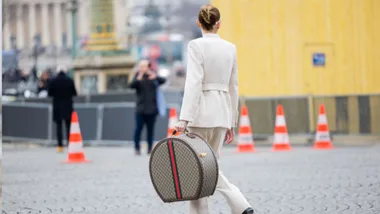When the first Mardi Gras took place on June 24, 1978, what was supposed to be a celebratory – and peaceful – protest seeking decriminalisation of homosexuality turned violent as 53 men and women were arrested. Many were viciously beaten in custody and their names, occupations and addresses were later published on the front page of the Sydney Morning Herald.
But rather than retreat, the original “78ers” vowed to keep the movement going, returning year after year in an aim for inclusion and equal rights for all. Journalist and former ABC reporter Julie McCrossin details that while 41 years of Sydney Mardi Gras has wrought incredible change, the fight is not yet over.
“For me, June 24, 1978 was just the latest in scores of marches and demonstrations I’d been part of with several hundred other gay liberation activists as we called ourselves back then. We’d been hitting the streets and getting arrested since about 1973. But there had been a huge debate amongst the gay and lesbian community about whether we needed to change direction. This long series of rallies and demonstrations, often involving multiple arrests, often involving violent clashes with police, was this approach working? Did we need to take a new approach?
“There was a strong view amongst some members of the community that we needed to have something more akin to a celebration, a Mardi Gras, where we might present a more friendly, colourful, attractive image to the general population and political decision makers, rather than anger and distress. It was a really big debate – people had vehement views on either side.
“Back then aversion therapy was very common. It was still against God’s will and people were arrested in public toilets all the time, clubs we went to would get raided. It was an amazingly difficult period so some of us were really angry and wanted to keep demonstrating in a more radical fashion, others wanted to go for the Mardi Gras celebration. There was a decision to do both. I was part of the classic demonstration in the morning, calling on decriminalisation and equal rights.
“So, in the morning there was the classic march, in the afternoon there was a forum at the Paddington Town Hall. Then at night there was the march up to Kings Cross that turned very violent because people went off the road which had been agreed to by the police. It then became an illegal demonstration and the police arrested everybody with great violence.
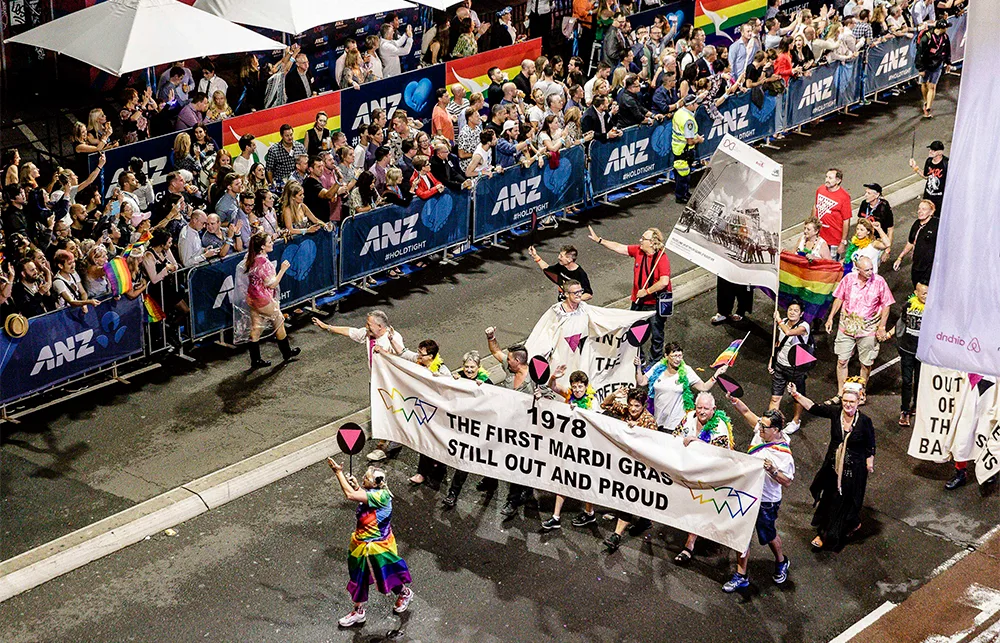
“I wasn’t physically there, I had another event that night. But we had telephone trees with people who were regular activists, regularly arrested and willing to bail people out. I got the call and arrived at Darlinghurst police station later that night where there were already several hundred people demonstrating and some friendly lawyers seeking to bail people out.
“We weren’t stealing. We were fighting for human rights that later went on to become accepted as legitimate. Many of us went on to become lawyers and judges and magistrates – we all had a big interest in the law because were arrested quite often. Many of my close friends to this day I met in those cells. It was a time of camaraderie and excitement because we were saying the days of shame are over, that homosexuality was a normal part of sexual expression and we deserved to be treated the same as everybody else. That seems so normal now, particularly when we’ve just had gay marriage legalised, but back then it was very much a minority opinion.
“If I was talking about that first Mardi Gras in 1978, I wouldn’t describe it as a success. I would have described it as a traumatising experience because there was so much violence and people were actually hurt. It was intended as a celebration. Those who had been arguing for a gentler approach were shocked by the reaction they got.
“However, it was the beginning of the change. We were determined to keep going. There was no pause in the action. Demonstrations and advocacy continued right up to the next Mardi Gras. And what happened was each year we got more and more effective at dressing up. It took into the ‘80s and ‘90s for the people in our community who had genuine flair and creativity to bring humour and irreverence, the big organised dancing in groups into the floats and parades.
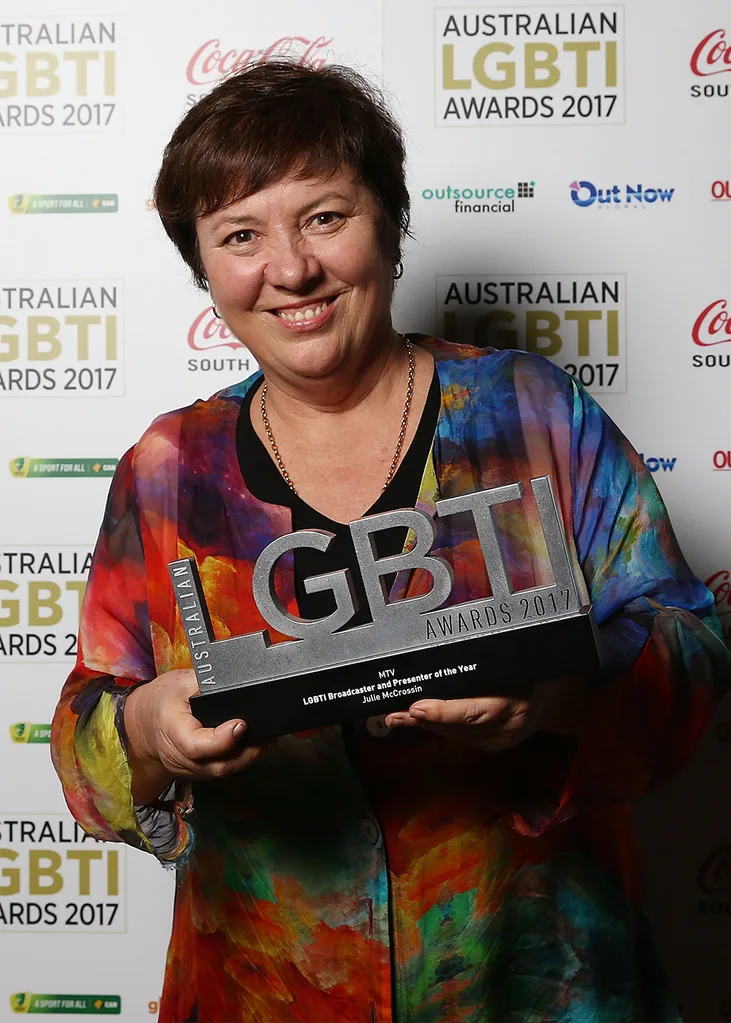
“Also, there were leaders within the police and government who knew it had gone too far. The violence of that event in 1978 helped bring about decriminalisation in 1984. I always thought homosexuality would be decriminalised. I never imagined we’d get marriage. That’s a tremendous development which is deeply moving and will empower progressive people within the different safe communities to help us marry in churches. I’m 63 and I still hope to see that in my lifetime.
“There are three areas where Mardi Gras is still needed in Australia. First and most important is multicultural Australia. Homosexuality is still against the law in 72 countries, in a number of those there is still a death penalty. And we have migrants and communities from all those countries in Australia where it is absolutely unacceptable to be homosexual. Where you are at risk from violence from your family.
“Second, as an out gay woman and a member of the Uniting Church, for many years I’ve had young men and women talk to me their despair that if they tell their family and church community they will be expelled. People are as distressed and frightened now as I was when I was a young girl in the ‘60s.
“The third is the area of gender identity because the language there is changing almost month to month. And while they are very small in number the impact is very significant for them and their families across Australia and Mardi Gras are one of the very few places where people can gather in a light-hearted way.
“The great thing about Mardi Gras is that it’s fun. The people who first decided that was a great idea and supported it being a celebration, it was a genius decision. And so we can still provide a safe, fun space where for one night you can relax and say ‘Happy Mardi Gras’. Where you can be among friends who accept you and you can have a public space of advocacy for your community. Mardi Gras is just as needed as ever.”
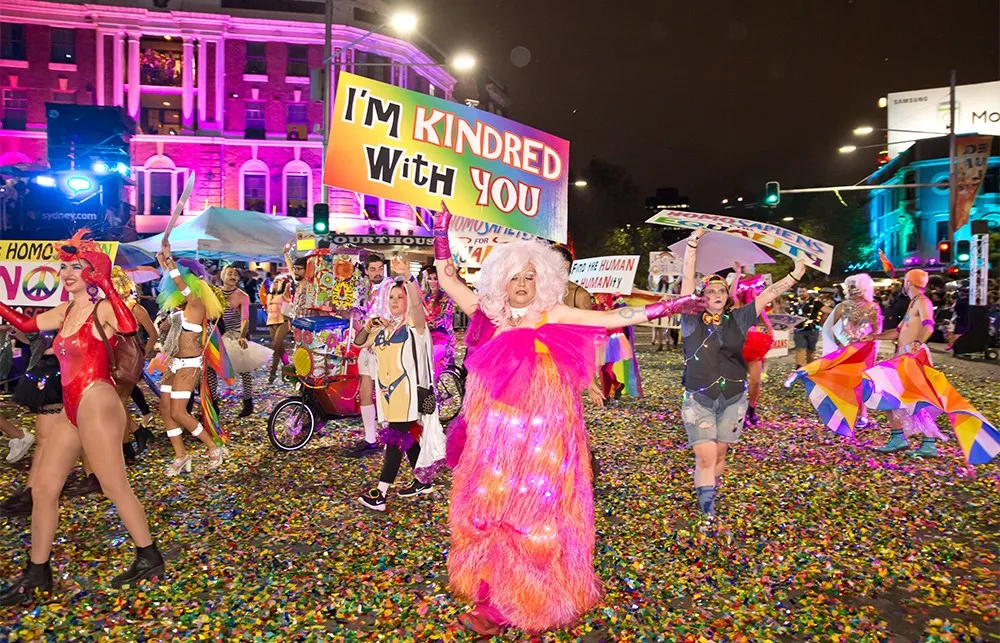
RELATED: Finally! Australia Has Legalised Same-Sex Marriage
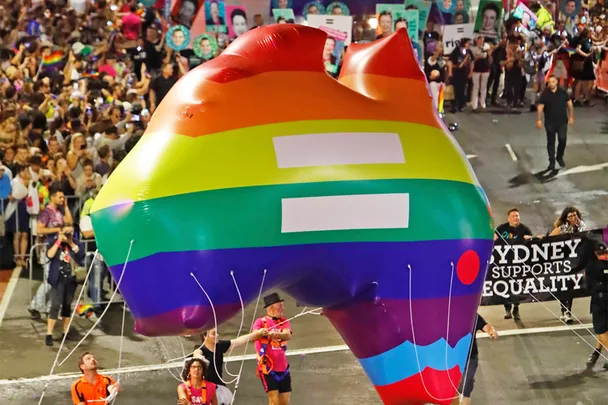 Ann-Marie Calilhanna
Ann-Marie Calilhanna
